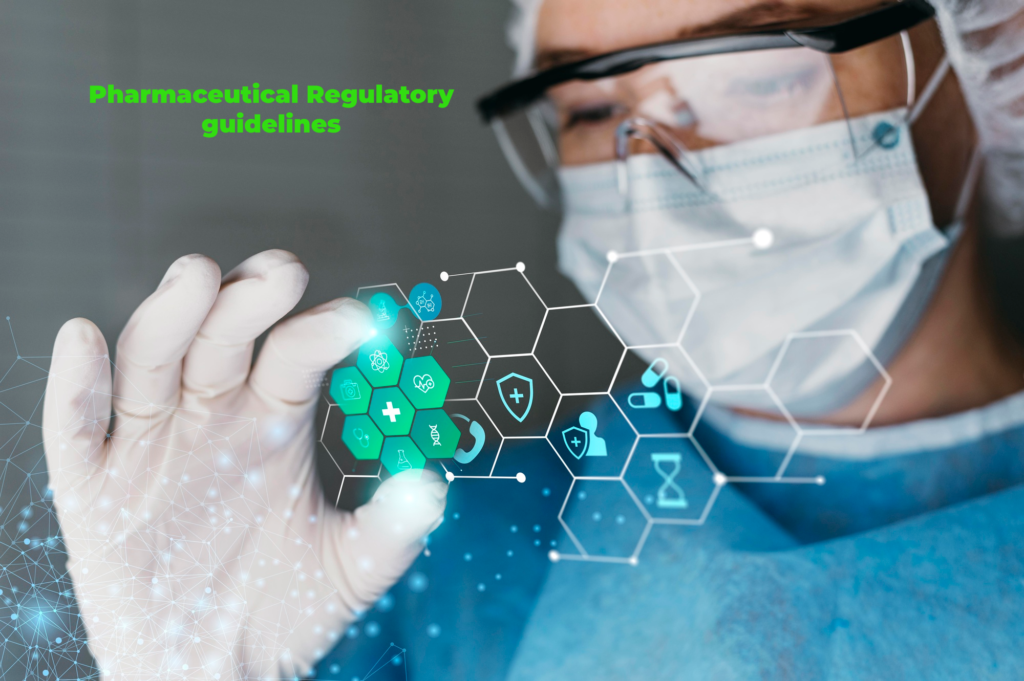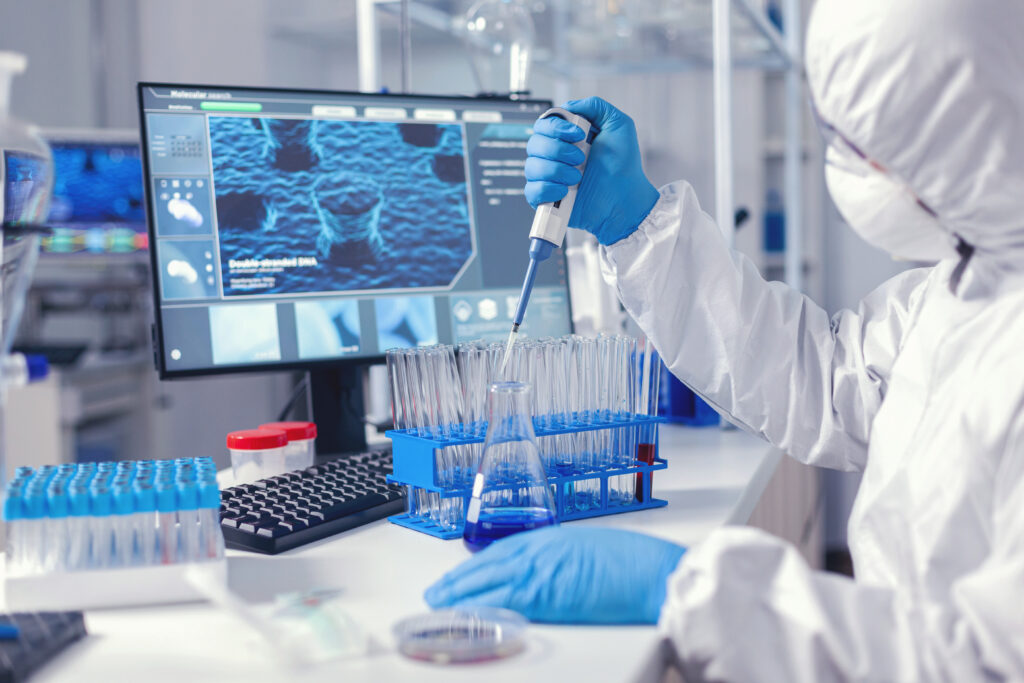1. Introduction to Pharmaceutical Patents
Pharmaceutical patents provide inventors with exclusive rights to manufacture, use, and sell their innovations. In the UK, these rights are governed by the Patents Act 1977, which aligns with the European Patent Convention (EPC) and international treaties such as the Agreement on Trade-Related Aspects of Intellectual Property Rights (TRIPS). These laws aim to strike a balance between rewarding innovation and fostering competition.
2. Requirements for Pharmaceutical Patent Protection
To qualify for patent protection in the UK, pharmaceutical inventions must meet specific criteria:
Novelty
The invention must be new and not disclosed to the public before the filing date.
Inventive Step
It must involve an inventive step, meaning it should not be obvious to someone skilled in the pharmaceutical field.
Industrial Applicability
The invention must be capable of practical application, such as contributing to drug production or healthcare.
Patentable Subject Matter
Certain discoveries, such as natural phenomena or mere scientific theories, are not patentable. However, new formulations, processes, or methods of treatment typically qualify.
3. Patent Application Process
Preparing the Application
A pharmaceutical patent application includes:
- Specification: A detailed description of the invention, including how it works.
- Claims: Specific statements defining the scope of protection sought.
- Drawings: Visual representations, if necessary.
- Abstract: A concise summary of the invention.
Pharmaceutical patents require clarity and precision in their claims to avoid disputes and ensure enforceability.
Filing the Application
The application is submitted to the UK Intellectual Property Office (UKIPO). The filing process requires:
- A completed Form 1 (Request for Grant of a Patent).
- The application fee.
- Supporting documents, including the specification and claims.
Applications can also be filed electronically for efficiency.
Formal Examination
Upon submission, the UKIPO conducts a formal examination to ensure the application meets basic filing requirements, such as completeness and proper formatting.
Search Stage
The UKIPO performs a patent search to identify prior art—existing patents or publications that may affect the novelty of the invention. The results are provided in a Search Report, highlighting potential obstacles to patentability.
Substantive Examination
During the substantive examination, the UKIPO evaluates the application against the patentability criteria:
- Does the invention meet novelty, inventive step, and industrial applicability requirements?
- Are the claims sufficiently clear and supported by the description?
Applicants may need to amend claims or provide additional evidence to address examiner objections.
Grant of Patent
If the application satisfies all requirements, the UKIPO grants the patent. The grant is published in the Patents Journal, and the details become publicly accessible.
Routes for International Protection
Pharmaceutical companies often seek patent protection in multiple countries to safeguard their interests. Two key routes are available:
European Patent Route
Through the European Patent Office (EPO), applicants can file a single application covering multiple European countries, including the UK.
Patent Cooperation Treaty (PCT)
The PCT allows applicants to file a single international application, preserving their rights in over 150 countries. After the international phase, applicants must pursue national or regional phase patents.
Post-Grant Considerations
Maintenance and Renewal
UK patents require annual renewal fees to remain in force. Failure to pay these fees can result in lapsing of the patent.
Supplementary Protection Certificates (SPCs)
SPCs extend the patent term by up to five years for pharmaceutical products that require regulatory approval, compensating for time lost in obtaining marketing authorization.
Common Challenges in the Application Process
Overcoming Examiner Objections
Pharmaceutical patents often face challenges related to inventive step or sufficiency of disclosure. Proactive engagement with the examiner and strategic amendments can address these issues.
Patent Thickets
Pharmaceutical companies must navigate existing patents to avoid infringement and ensure freedom to operate.
Costs and Timelines
Patent applications involve significant costs and time, from filing fees to professional representation. Proper planning is essential for successful patent prosecution.
4. Patent Term and Extensions
Standard Patent Term in the UK
The term of a standard patent in the UK is governed by the Patents Act 1977 and is aligned with international conventions.
Duration
A patent in the UK is valid for 20 years from the filing date of the application, provided the annual renewal fees are paid.
1Maintenance Requirements
Patent holders must pay annual renewal fees starting from the fourth year after filing. Non-payment leads to patent lapse, but there is a six-month grace period to rectify this.
Challenges of Limited Market Exclusivity for Pharmaceuticals
Pharmaceutical inventions face unique challenges that reduce their effective patent life:
- Regulatory Delays: Medicines require extensive clinical trials and approval from regulatory bodies such as the Medicines and Healthcare products Regulatory Agency (MHRA).
- Generic Competition: Once patents expire, generic manufacturers can enter the market, drastically reducing the revenue of the original product.
To address these challenges, patent extensions such as Supplementary Protection Certificates (SPCs) have been introduced.
Supplementary Protection Certificates (SPCs)
Purpose of SPCs
SPCs extend the exclusivity period of patented pharmaceutical products to compensate for time lost in obtaining marketing authorization. They ensure that innovators have sufficient time to monetize their inventions.
Legal Framework
SPCs in the UK are governed by Regulation (EC) No. 469/2009, which continues to apply post-Brexit, with adaptations made to fit UK law.
Eligibility Criteria
To qualify for an SPC, the following conditions must be met:
- The product must be protected by a basic patent in force.
- A valid marketing authorization must have been issued for the product.
- The product must not have previously been the subject of an SPC.
- The application must be filed within six months of receiving marketing authorization or the grant of the basic patent, whichever is later.
Duration of SPCs
SPCs provide a maximum extension of five years, calculated from the expiry date of the basic patent. For pediatric medicines, an additional six months of extension can be granted under the Paediatric Regulation.
Regulatory and Procedural Aspects
Application Process
SPC applications are submitted to the UK Intellectual Property Office (UKIPO). They must include:
- Details of the basic patent.
- A copy of the marketing authorization.
- Evidence demonstrating the product’s eligibility for an SPC.
Examination and Grant
The UKIPO evaluates the application for compliance with legal requirements. Once approved, the SPC comes into force immediately after the basic patent expires.
Pediatric Extensions
The Paediatric Regulation incentivizes the development of medicines for children by granting an additional six months of SPC protection. This extension is available if the product’s pediatric studies meet regulatory requirements and are included in the marketing authorization.
Importance of Patent Term Extensions
Patent term extensions, particularly SPCs, are essential in the pharmaceutical industry for several reasons:
Encouraging Innovation
Extended exclusivity provides pharmaceutical companies with the financial incentives necessary to invest in research and development.
Addressing Market Delays
By compensating for regulatory delays, extensions ensure that patent holders enjoy a reasonable period of market exclusivity.
Supporting Public Health
Extensions incentivize the development of innovative treatments, including pediatric medicines, that might otherwise be financially unviable.
Challenges and Controversies
Despite their benefits, patent term extensions are not without challenges:
High Drug Prices
Extended exclusivity periods can delay the entry of generics, leading to prolonged high drug prices and accessibility concerns.
Administrative Complexity
The SPC application process can be complex, requiring precise documentation and compliance with strict timelines.
Balancing Public and Private Interests
Policymakers must balance incentivizing innovation with ensuring affordable access to medicines for the public.
5. Key Considerations for Pharmaceutical Patents
Regulatory Compliance
Pharmaceutical patents must align with the Medicines and Healthcare products Regulatory Agency (MHRA) requirements.
Generic Competition
Once patents expire, generic manufacturers can produce and sell cheaper versions. Patent holders often employ strategies like secondary patents or “evergreening” to delay competition.
Patent Infringement
Unauthorized use of a patented invention constitutes infringement. UK courts enforce patents and may award damages or injunctions to patent holders.
6. Challenges in Pharmaceutical Patent Law
Balancing Innovation and Accessibility
High drug prices linked to patented medicines spark debates over affordability and healthcare equity.
Patent Thickets
Complex webs of overlapping patents can hinder competition and innovation.
Global Disparities
Developing nations often struggle to afford patented medicines, leading to calls for more flexible licensing under TRIPS provisions.
7. Recent Developments and Trends
Updates to Supplementary Protection Certificates (SPCs)
Post-Brexit Adaptations
Following Brexit, the UK retained SPC regulations under a domestic framework. While SPCs in the UK still follow the principles of Regulation (EC) No. 469/2009, the nation’s divergence from EU law has prompted discussions about reforming SPC procedures to better suit domestic priorities.
Expedited SPC Examination
To streamline the patent extension process, proposals for faster SPC application reviews have gained traction. These changes aim to reduce administrative delays, ensuring timely market exclusivity for innovators.
Focus on Biologics and Advanced Therapies
Expanding Patent Scope
With the rise of biologics, gene therapies, and personalized medicine, patent law is adapting to cover these complex and high-cost innovations. Efforts are being made to refine patent criteria, ensuring robust protection for these emerging fields.
Tailored Regulatory Pathways
New pathways for approving and patenting biologics have been introduced, focusing on efficiency and ensuring timely patient access while safeguarding intellectual property rights.
Increased Use of Patent Term Extensions
Pediatric Extensions
The Paediatric Regulation continues to incentivize research into child-specific treatments by offering an additional six months of exclusivity for compliant pharmaceutical patents.
Balancing Innovation and Access
Patent term extensions, such as SPCs, have become a critical tool in maintaining revenue streams for pharmaceutical companies. However, this has also raised concerns about delayed market entry for generics, prompting calls for a balanced approach.
Emphasis on Green Pharmaceuticals
Patent Incentives for Sustainability
The UK government has shown interest in promoting environmentally sustainable pharmaceuticals. Innovations in eco-friendly drug manufacturing and packaging are being incentivized through targeted patent protections.
Aligning with Global Sustainability Goals
The pharmaceutical sector is increasingly aligning with international frameworks like the UN’s Sustainable Development Goals (SDGs), influencing patent strategies and innovation priorities.
Digital and AI Integration in Drug Development
Patents for AI-Driven Innovations
Artificial intelligence (AI) and machine learning (ML) are revolutionizing drug discovery and development. Patent laws are being reassessed to accommodate AI-generated inventions, particularly in areas such as drug repurposing and predictive modeling.
Legal Challenges
Defining inventorship and ownership of AI-generated pharmaceutical patents remains a contentious issue, with ongoing debates about whether AI can be recognized as an inventor under UK law.
Patent Litigation and Dispute Trends
Increase in Patent Disputes
The pharmaceutical sector has seen a rise in litigation over patent validity and infringement. High-stakes disputes often involve blockbuster drugs nearing patent expiration or biologics facing biosimilar competition.
Use of Alternative Dispute Resolution (ADR)
To reduce the costs and time associated with traditional litigation, pharmaceutical companies are increasingly turning to ADR methods, such as mediation and arbitration, to resolve patent disputes.
Strengthening Global Collaboration
International Harmonization
The UK continues to collaborate with global patent offices to harmonize pharmaceutical patent laws. This includes participating in initiatives like the Patent Prosecution Highway (PPH) to expedite cross-border patent examinations.
Trade Agreements
Post-Brexit trade agreements are shaping the pharmaceutical patent landscape, influencing provisions for data exclusivity, SPCs, and IP enforcement.
Enhanced Transparency and Accessibility
Open Innovation Models
Pharmaceutical companies are increasingly adopting open innovation models, sharing data and collaborating with research institutions while safeguarding critical intellectual property.
Public-Private Partnerships
Collaborations between the government, academia, and industry aim to strike a balance between protecting patents and ensuring affordable access to medicines.
Challenges and Future Outlook
Balancing Innovation and Public Health
Striking a balance between rewarding innovators and ensuring public access to affordable medicines remains a key challenge. Policymakers are exploring mechanisms like compulsory licensing and price regulation.
Adapting to Technological Advancements
Emerging technologies, such as CRISPR and nanotechnology, require continual updates to patent laws to ensure effective protection while fostering innovation.
Regulatory Convergence
The UK’s ability to align or diverge from international pharmaceutical patent standards post-Brexit will significantly influence its attractiveness as a hub for pharmaceutical innovation.
8. Conclusion
Pharmaceutical patent law in the UK serves as a cornerstone for innovation, incentivizing research and development while addressing public health needs. As the industry evolves, balancing intellectual property rights with accessibility will remain a critical challenge. Policymakers, legal experts, and stakeholders must collaborate to create a system that benefits innovators and society alike.
For more articles, Kindly Click here.
For pharmaceutical jobs, follow us on LinkedIn
For Editable SOPs in Word format contact us on info@pharmaceuticalcarrier.com
For more information kindly follow us on www.pharmaguidelines.co.uk



